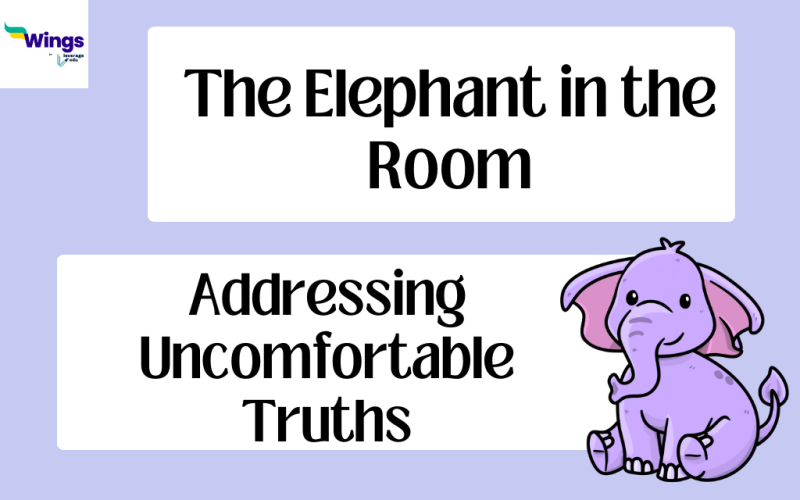The idiom “Elephant in the Room” is commonly used to describe a situation or topic that is glaringly obvious but deliberately avoided or ignored. It refers to a significant issue or problem that everyone is aware of, yet no one wants to acknowledge or discuss openly.
The phrase originates from the idea of a large elephant being present in a room, impossible to ignore, yet people pretend it doesn’t exist. This idiom is often used to draw attention to sensitive or uncomfortable subjects that need to be addressed for progress or resolution.
Also Read: Useful Idioms with Examples, Sentences and Meanings
Usage with Examples
1. During the team meeting, nobody mentioned the budget cuts, which were the elephant in the room affecting our projects’ progress.
2. The tension between the two political parties was the elephant in the room during the debate, as both candidates avoided addressing it directly.
3. In a family gathering, the strained relationship between two siblings was the elephant in the room that cast a shadow over the otherwise cheerful atmosphere.
Also Read: Idioms for IELTS
Synonyms and Similar Expressions
– Unspoken issue
– Undiscussed problem
– Taboo subject
– Unaddressed concern
– Deliberate oversight
Understanding and acknowledging the elephant in the room is crucial for fostering open communication, finding resolutions, and moving forward constructively. By breaking the silence and addressing uncomfortable truths, individuals and groups can pave the way for meaningful discussions and positive change.
Elephant in the Room Quiz
The phrase “Elephant in the Room” is used to describe:
a) A situation or topic that everyone is aware of but deliberately avoids discussing.
b) An animal in a room that cannot be physically removed.
c) A metaphor for overcrowded spaces.
Answer: a) A situation or topic that everyone is aware of but deliberately avoids discussing.
This was all about the idiom elephant in the room meaning and examples. Hope you understood the concept where it’s used. For more such blogs, follow Leverage Edu.
 One app for all your study abroad needs
One app for all your study abroad needs














 45,000+ students realised their study abroad dream with us. Take the first step today.
45,000+ students realised their study abroad dream with us. Take the first step today.

